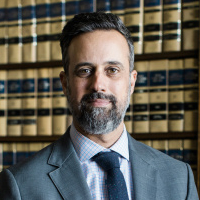 Penngrove Felony Lawyers, California
Penngrove Felony Lawyers, California
Sponsored Law Firm
-
 x
x

Click For More Info:
-
Heather Wise Attorney at Law
700 College Ave Suite 1 Santa Rosa, CA 95404» view mapCriminal Defense Effective, Compassionate, & Tenacious
Ms. Wise is committed to supporting the safety and rights of our entire community. She is intent on providing compassionate and effective representation.
800-920-7321
Sponsored Lawyers
1-10 of 11 matches
Criminal, Felony, Personal Injury
When the legal system fails you, you can’t leave yourself or your child at the mercy of a judge and 12 jurors. Seth Morris has saved his clients from the grasp of the system time and time again by securing dismissals and no-time deals on murder cases and people facing life in prison.
(more)Criminal, Felony, DUI-DWI, Misdemeanor, White Collar Crime
Armed with considerable experience working for the District Attorney in Sacramento, CA and her voluminous representation of large corporate clients in the private sector, Jo-Anna M. Nieves has the skills and endurance needed to zealously advocate on her clients’ behalf. The Nieves Law Firm, APC, has effectively and successfully represented clients in a wide range of legal matters in Oakland,CA and throughout the Bay Area.
(more)


 Heather Wise Santa Rosa, CA
Heather Wise Santa Rosa, CA Practice AreasExpertise
Practice AreasExpertise


